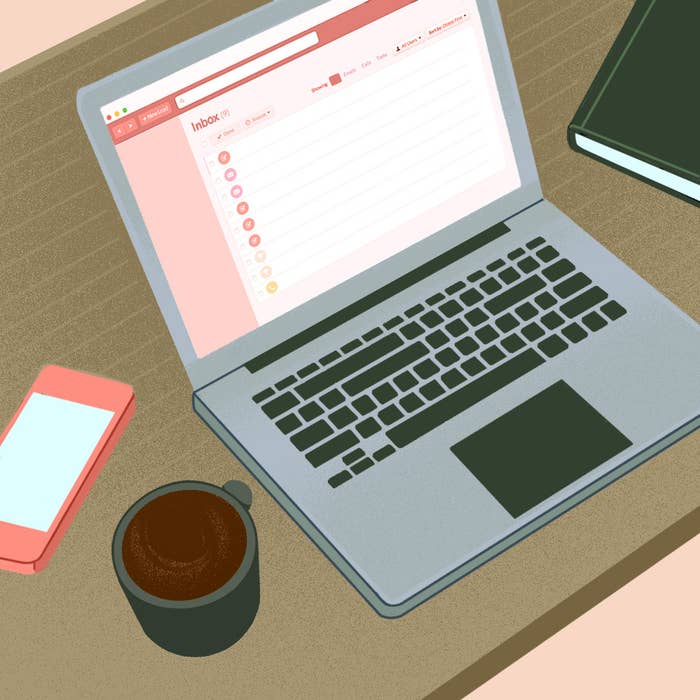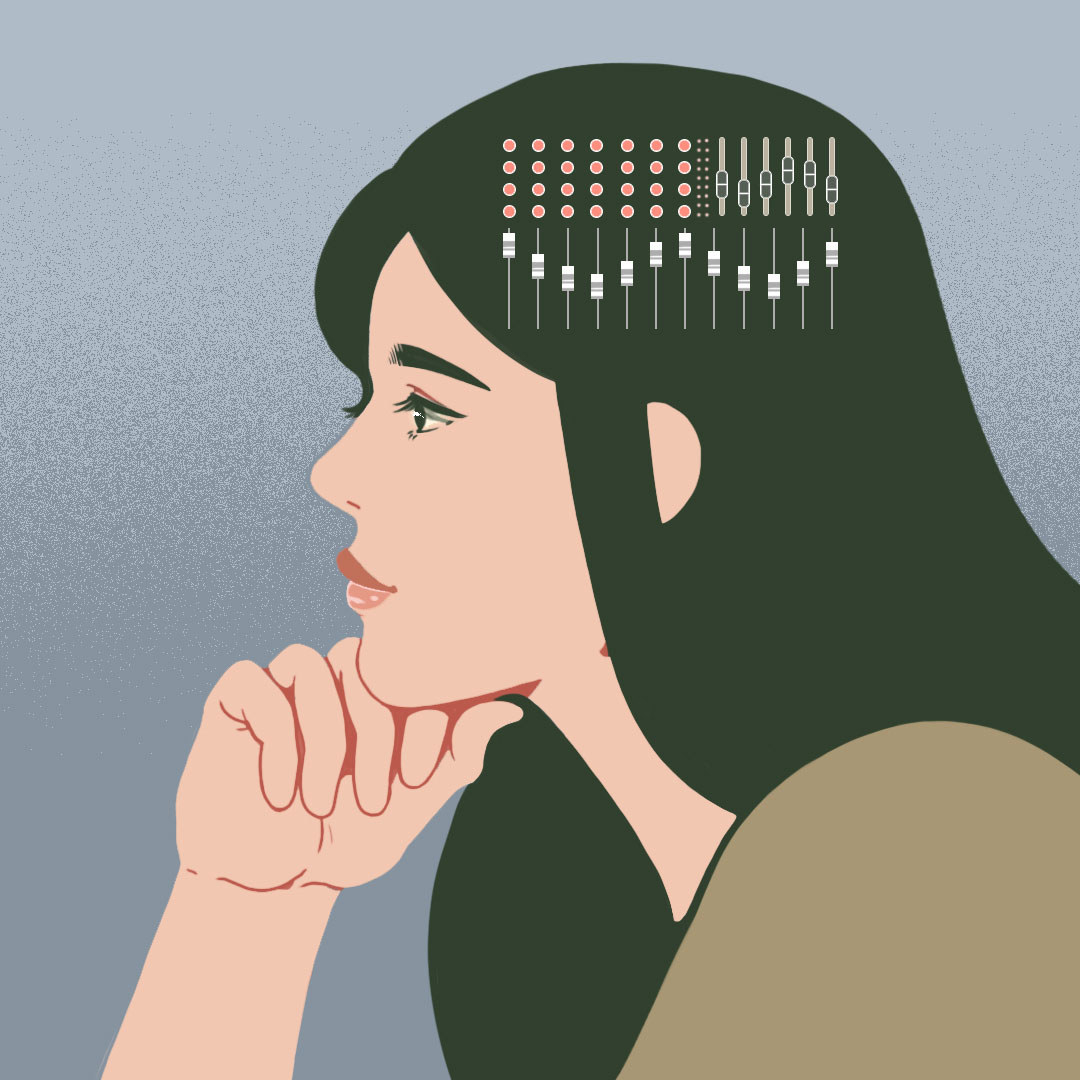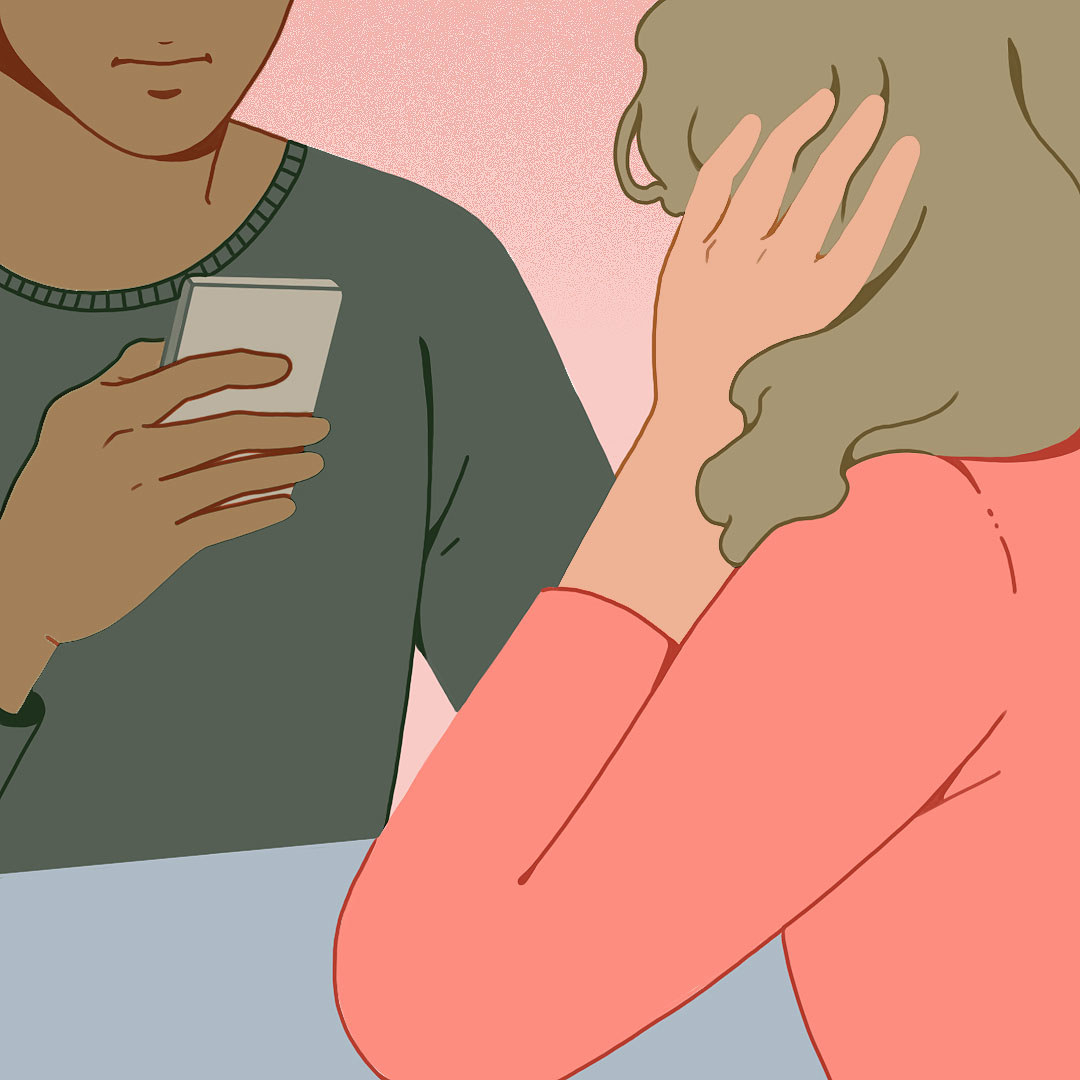
Chances are, you multitask a lot. At any given moment of the day, you might be scrolling through Instagram while stopped at red lights, Gchatting while banging out a report at work, texting while holding a conversation, or playing Candy Crush on your phone while pretending to be really into Westworld.
It's also highly possible that you think you're pretty good at multitasking — and even pride yourself on your skill. After all, being able to furtively Slack your coworkers the details of Brenda's relationship drama while also totally paying attention in a meeting is nothing less than masterful juggling, right?
Well, no offense (and my condolences to Brenda), but the verdict is in: multitasking is bad, and you shouldn't do it. I spoke with four experts on the subject, and no matter how you slice it, you're fooling yourself if you think you can do everything all at once and have no consequences.
If you're in the middle of doing three other things while "reading" this, let me boil down the worst effects of multitasking for ya to a short snippet: Studies have shown that multitasking lowers people's job satisfaction, damages personal relationships, adversely affects memory, negatively impacts health, and hinders creativity.
Multitasking lowers people's job satisfaction, damages personal relationships, adversely affects memory, negatively impacts health, and hinders creativity.
As authors Rasmus Hougaard and Jacqueline Carter put it in The Mind of the Leader, "extensive research has confirmed that humans are incapable of multitasking." When we multitask at work, they write, we become "masters of everything that is irrelevant, we let ourselves be distracted by anything." In fact, only 2% of the population is capable of executing multiple tasks at once without any drop in quality or efficiency. The studies are in! The research has spoken!
To get an idea of why, exactly, multitasking makes things harder, instead of easier, think of it in terms of switches. Any cognitively demanding activity — think writing, reading, crunching numbers — is a task. When we try to do more than one of those at a time, we're actually technically not multitasking; we're switch-tasking. We can't do both tasks competently at the same time, so we switch back and forth between them. And those switches come with a cost. "Your brain has to reorient its attention every time you switch from one task to another," Gloria Mark, a professor of informatics at UC Irvine, said. "That loss of mental resources wastes time, causes stress, and means that the quality of the things you're working on decreases."
If your email pings while you're working on a project and you go to check what it says? That's switch-tasking. Your coworker texts you about Trent's whale-printed belt during Trent's presentation? Yep, that's switch-tasking, too. Research has found that this kind of switch-tasking causes a 40% decrease in productivity, and Dave Crenshaw, author of The Myth of Multitasking, estimates that if we eliminated switches like these by 80%, we would recover 40 extra hours (!!!!!) of free time a month.
However, not all multitasking is bad. Multitasking is an umbrella term that covers our close friend switch-tasking and its chill, laid-back cousin, background-tasking. That's when you're doing multiple things at once, but they don't require cognition, like watching Food Network while running on the treadmill, or listening to Carly Rae Jepsen while vacuuming.

This is all work-related, but, as every single expert told me, switch-tasking is really horrible to do in your personal life. There are two obvious and common instances of this. One is using your phone while talking to another person. The phone, that unwanted guest, the figurative other man/woman/person in a relationship, creates a lack of presence, one that people notice right away, psychologist Ryan Howes told me. "It makes them feel not so important, not a priority," he said. "We think we’re good at masking that, but we’re not. It makes other person or people feel like lower priority, and that sucks."
The other is phone-ing (I just made that up, don't @ me) and driving. Miller is unequivocal in his opinion of the relationship between phones and cars: they do not belong together. "It’s not just the physical phone, it’s the cognitive demands of a conversation," he told me. "It's almost as bad to have a phone conversation using a headset." When two people are talking IRL in a car, both generally know when to quiet down or stop talking. Plus, the passenger is another set of eyes on road. That's not the case when the second person isn't physically there.
"When someone is on the phone with you, they have no idea what’s going on in front of you," Miller added. "That’s just plain dangerous for drivers and anyone around them."
So, why do we want to do it so badly? Well, we're biologically wired to multitask. We've actually been multitasking since we were cavepeople, Earl Miller, professor of neuroscience at MIT told me. Back then, this was a good thing because "there weren't many sources of information, but what was there was crucial," he said. "A rustling in the bushes could mean a tiger was about to jump out at us. New information like that could be critically important for our lives."
Our singleminded brain (Miller's words, not mine) still craves all that information, but our brains haven’t evolved to deal with the incredible number of sources of it in out information-rich society. And even if we know deep down that switch-tasking is bad, our brains are extremely good at deluding themselves. "The brain rationalizes, it makes you think you’re good at something, even when you're not," Miller said.
Switch-tasking causes a 40% decrease in productivity. If we eliminated switches by 80%, we would recover 40 extra hours of free time a month.
We can also blame our current switch-tasking problem on, as with many things, Windows 95. Crenshaw told me that once we saw how easily and seamlessly our computers shifted from program to program, we thought, "Why can't I do that?" The problem, though, is that "computers aren't multitasking, not in the way that a human brain ever could. They just give the appearance of it. The very thing we’re borrowing is flawed from the beginning."
Then came mobile phones and, what seemed to be the big bad wolf among everyone I spoke with, email. Mark told me that people check their email an average of 74 times a day. Our email demands our attention. It makes our phone buzz, it makes a little (1) icon pop up that is impossible to ignore, it more or less stomps its feet and throws a fit until we pay attention to it. That's fertile ground for stress. "We've done a study that looks at the start and stop time of when people are on email, and then looks at stress measurements created by heart rate monitors," Mark said. "We find that the longer time people spend on email, the higher their stress."
So, what can we do to be better? A lot of things, luckily. For starters, we should determine the most common switches in our day-to-day life and do what we can to eliminate them so we can better monotask (aka single task). We (and the makers of apps and websites and our phones) have made switch-tasking seem incredibly exciting to our brain (the thrill of a new email! Even if it's spam!), but with time and practice, we can quell this enthusiasm and make it want to focus. Here are some tips for making it happen:
- Close out your email (and turn off any alerts you have) and instead check it on a set schedule throughout the day.
- Put your phone out of sight (Miller suggests that drivers put it in a bag or their glove compartment).
- Prioritize your tasks at work and make a schedule, and when you feel your mind drifting while single-tasking (something that'll probably happen after about 18 minutes), get up and walk around for 5-10 minutes to increase blood flow and heart rate.
- Decrease the impact of unavoidable switches by lumping similar tasks together, so that if they overlap, it doesn't require too much mental gymnastics to go back and forth between them.
You should also involve the key players in your life in your goal to monotask. For example, Crenshaw suggests having a face-to-face conversation with your boss where you say, "I’m trying to be more focused, which means I won't be checking my email constantly. Here’s what I’m thinking is going to be my schedule, does that work for you?" Making them an active partner will help you be more productive, Crenshaw said, and potentially make them more aware of their switch-tasking.

And whether you're single tasking or switch-tasking (because let's be real, it's impossible to avoid sometimes), deploying some simple mindfulness tricks will go a long way. Howes suggested keeping a running commentary on what you’re doing to stay aware and present. "Say to yourself, 'I’m in the elevator, I'm going into the office, I'm reviewing my notes.' Being intentional about everything you’re doing helps keep everything compartmentalized."
Another thing that helps is checking in with yourself. "Do it multiple times a day, and when you're in deep focus, give yourself a little status report every 15 minutes," Howes said. "And if you know that you tend to be high energy in morning and then drag at end of day, plan your tasks accordingly."
And, most importantly, be kind to yourself. "Try not to put so much pressure on yourself to get everything right," Howes said. Crenshaw added that asking yourself, "What should I do instead?" will help your brain break its patterns. In the meantime, challenge yourself to monotask. At the very least, I hope you read this article without toggling to anything else.
